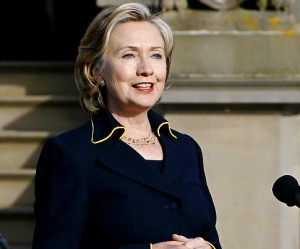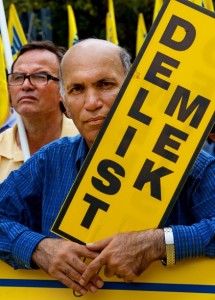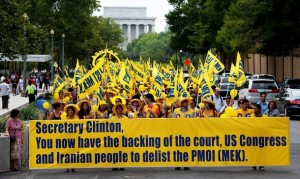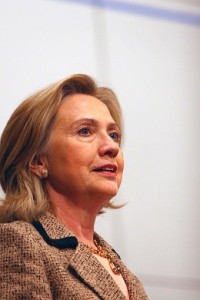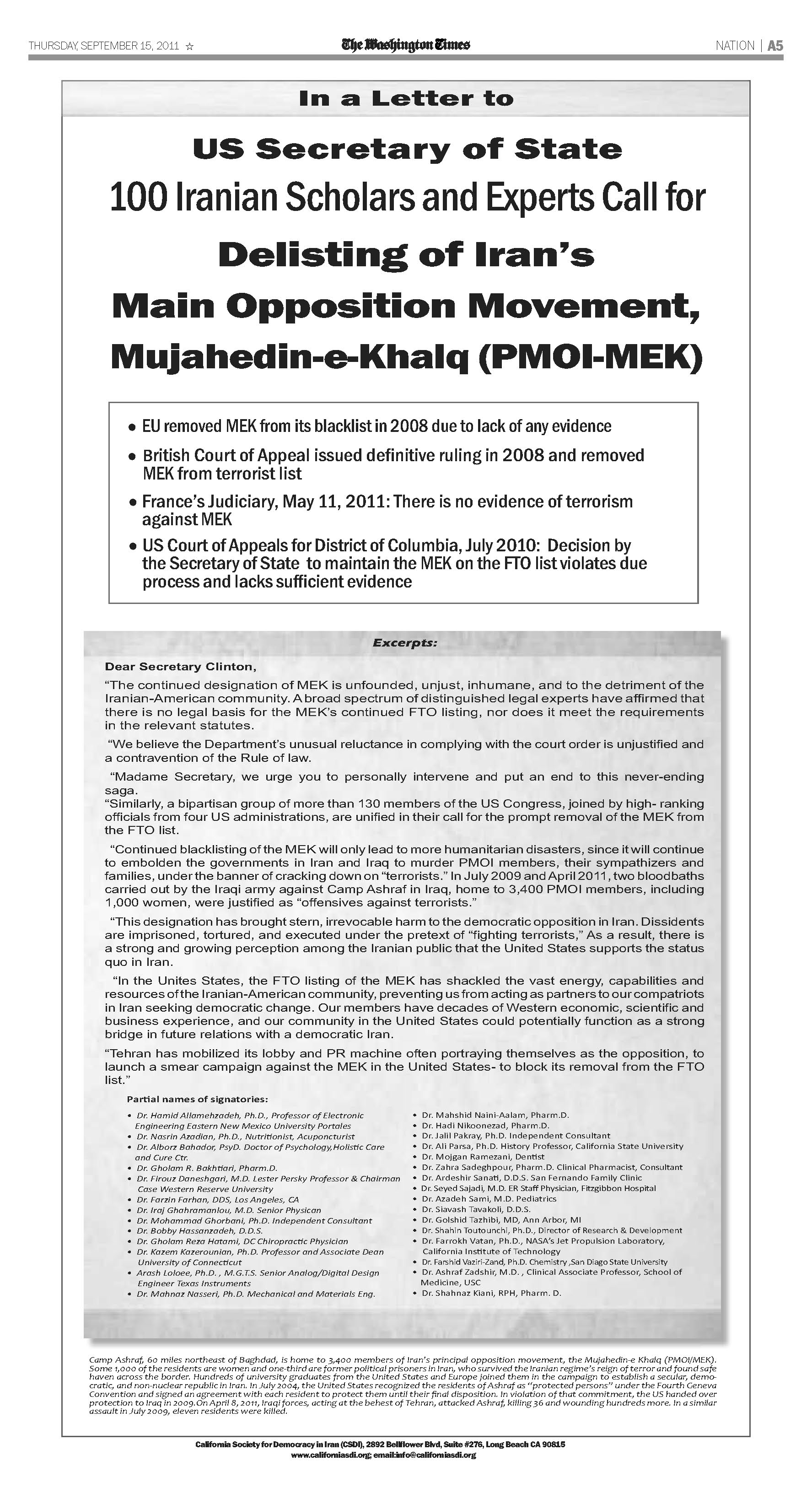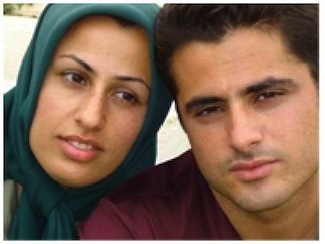PRNEWSWIRE
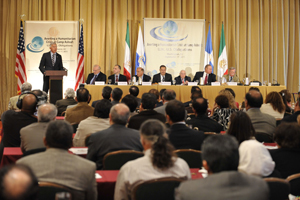
Senior Panel Denounces Ahmadinejad’s Visit to the United States, Urges the U.S. to Stand with the Iranian Opposition
WASHINGTON, Sept. 18, 2011 /PRNewswire-USNewswire/ — On Saturday, September, 17, 2011, a senior panel of former Secretaries, Generals, and Governors, as well as State and Justice Departments officials denounced the presence of the Iranian regime’s President Mahmoud Ahmadinejad at the United Nations, and urged the removal of Iran’s main opposition, the Mujahedin-e Khalq (MEK), from the State Department’s list of Foreign Terrorist Organization, according to Human Rights and Democracy International.
The panel of former senior officials included Attorney General Michael Mukasey, Energy Secretary Spencer Abraham, Governor Ed Rendell of Pennsylvania, Commandant of the Marine Corps General James Conway, Deputy Commander of United States European Command General Charles Wald, Ambassador John Bolton, and FBI Director Louis Freeh. The continuing designation of the MEK was acting as a license for genocide at Camp Ashraf, Iraq, the officials said.
“So what can the Secretary do as Mahmoud Ahmadinejad prepares to come to New York and stage his annual obscene performance at the United Nations?” asked Judge Mukasey. “She can do what the European Union has already done; what the United Kingdom has already done and remove this evil designation and she can do it as a splendid welcome to Ahmadinejad as he comes to New York to spit in the collective face of humanity.”
Gov. Rendell added, “Not one of the sources has listed any act of violence by the MEK against the United States or any of its allies since 2001 for more than a 10 year period… We have expert witness, circumstantial evidence, opinion of another court; that ought to be enough if we follow the law, if we decide this case on the merits. It’s overwhelmingly not guilty; delist the MEK and let’s do it now.”
“The maintenance of this organization, contrary to all the facts and the law is not just passivity. It is the basis by which we provide a license to kill to the Iranian regime and unfortunately to the Prime Minister of Iraq. And this license to kill is used on a frequent basis, whether it’s the kangaroo courts in Iran, arresting, torturing and killing people or the atrocities on April 8th. This is averting genocide and war crimes. So time here is not of the essence; time is critical,” emphasized Director Freeh.
Speaking of his personal experience with the MEK at Camp Ashraf, General Conway said, “My operations officer and battalion commander came back shaking their heads, saying these people are not terrorists, they’re no more terrorist than the framers of our own constitution. They don’t like the government of their host nation but there’s no terrorist activity that we have to be concerned about… What happened there [at Ashraf] a few months ago now is pure outrage. We as a nation had, and it has been said many times, a moral responsibility for the protection of those people.”
“I think particularly it is distressing to hear of the circumstances of camp Ashraf. Simply put the United States in my view has a moral obligation to protect the people there… At the end of the day Congress and the Administration must go beyond the resolutions and written things. We have to be a lot more forceful. This is a serious humanitarian matter and we cannot sit back,” stressed Secretary Abraham.
“One of the central elements of the opposition has been the MEK,” noted Amb. Bolton, adding, “I had a passion in the government to read intelligence… I read what I could read about the MEK… I haven’t seen anything that justifies the MEK being on the list of foreign terrorist organizations… The Director of Counterterrorism at the end of the Bush administration and Secretary Rice’s legal officer both argued with her as a matter of law and policy that the designation could not be sustained.”
“I agree with everything that’s been said mostly it is specifically on the Camp Ashraf and MEK issue,” said General Wald, emphasizing that “to make an exception for people like the MEK that aren’t at all identified with a terrorist organization, from a legal standpoint, falls in the category of immorality for me from the stand point of how we recognize citizens in our world.”
Dr. Allan Gerson, former Chief Counsel to the U.S. delegation at the U.N. moderated the event, “Averting a Humanitarian Crisis at Camp Ashraf: U.N., U.S. Obligations.” He said in part of his remarks, “The title of our conference is the obligations of the U.N. and the United States to avert a humanitarian crisis…It’s about avoiding death and slaughter. What’s looming [at Camp Ashraf] is not simply a humanitarian disaster but death and destruction and self-humiliation for the United States on the grand scale because if these people were ever to be allowed to be repatriated in some way to Iran that would be a self-humiliation for the United States that would take generations to erase.”
SOURCE Human Rights and Democracy International
